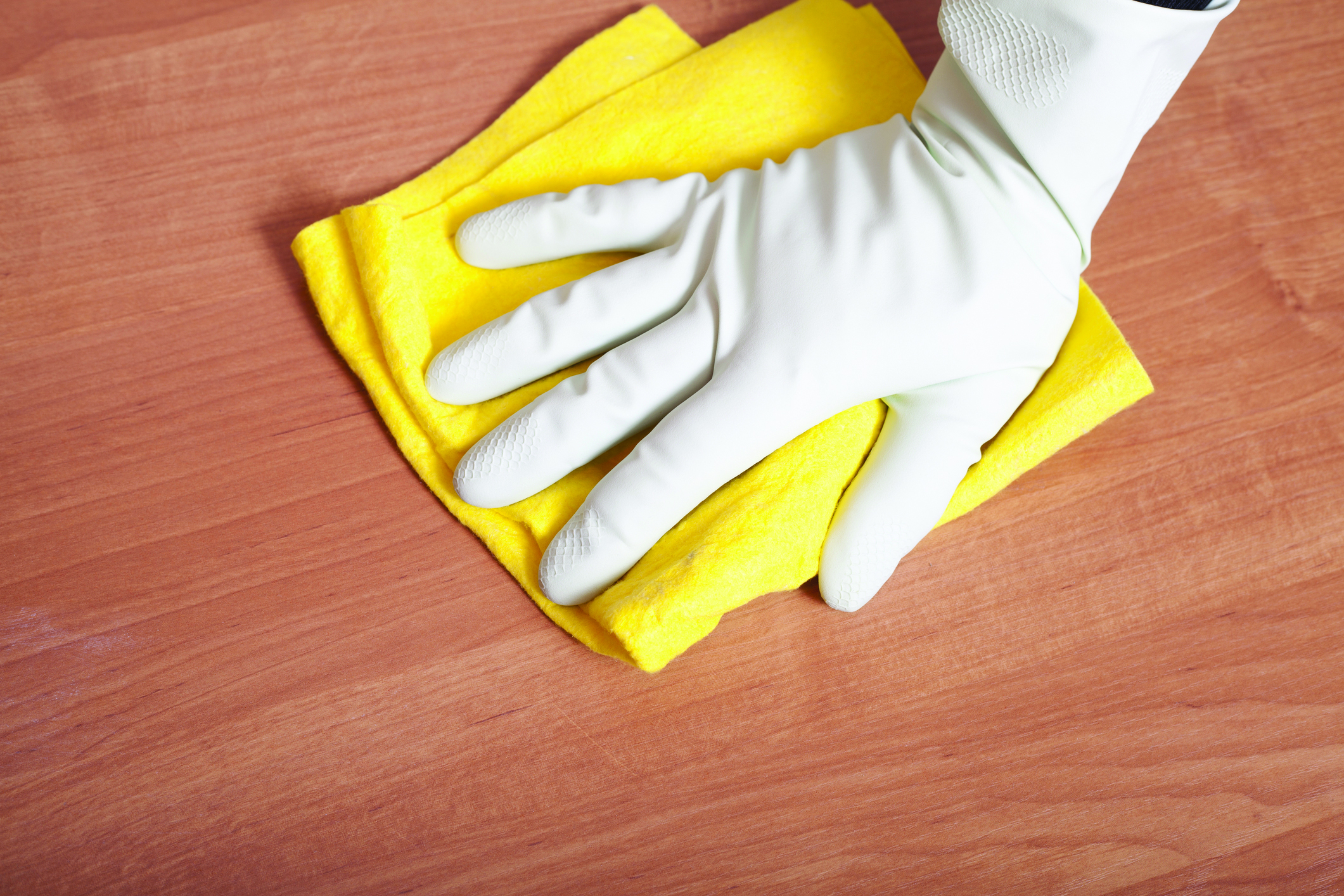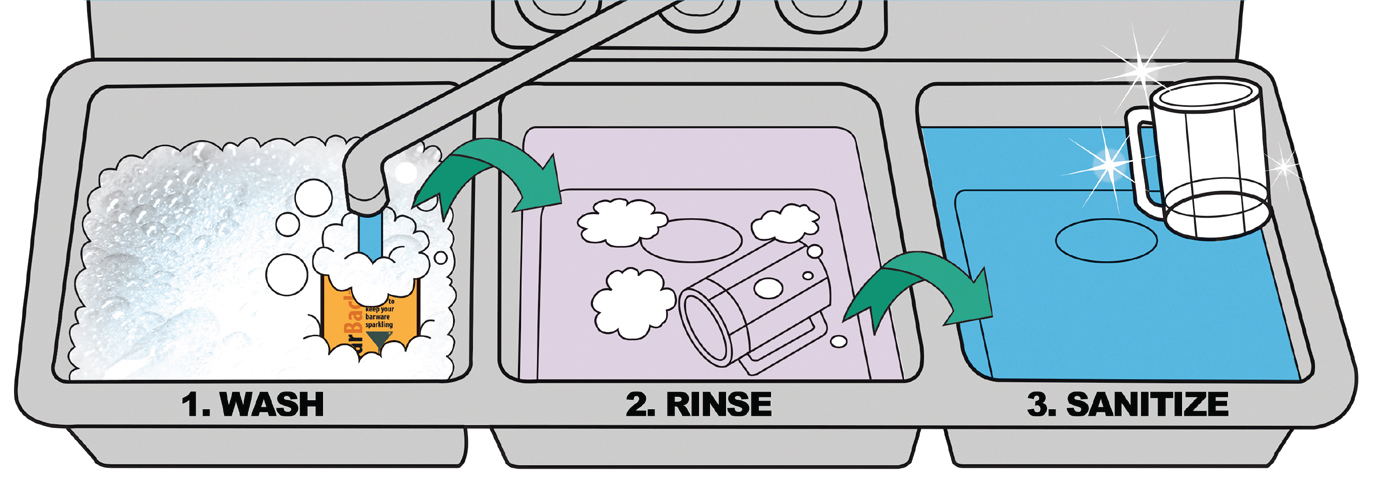

Jewelry, including rings, watches, and bracelets, should not be worn during food handling for several reasons. Hair restraints (hat, hair net, or beard net) and clean aprons are staples for food handlers.
Cleaning sanitizing food eqipment steps professional#
Not only does this give a professional appearance, but dirty clothes carry pathogens that can transfer to food and cause foodborne illness.

National Food Service Management Institute mini-poster: Use Disposable Gloves Properlyįood handlers should come to work in clean clothes.Print out the following mini-poster and hang it in your kitchen facility to remind employees about proper glove-wearing practices. If changing tasks (e.g., chopping lettuce, then moving on to making a sandwich).Some examples of when gloves should be changed include: Once gloves are on, they need to be changed frequently. Before wearing gloves, a food handler should wash their hands. Thus, wearing single-use (disposable) gloves that fit properly is another practice in the food service industry. Wearing Single-Use Glovesįood handlers should not touch ready-to-eat foods with bare hands because doing so can transfer pathogens to food. The handwashing sink should be labeled as such and stocked with hot and cold running water, hand soap, single-use paper towels or a hand dryer, and a garbage can. Handwashing should always be done at a designated handwashing sink once you have entered the kitchen (even if you washed your hands after using the restroom). (The FDA defines indirect food additives as “those that become part of the food in trace amounts due to its packaging, storage or other handling.” All materials coming in contact with food must be proven to be safe “before they are permitted for use in such a manner.”) Also, the ingredients in a hand sanitizer product must be approved food additives by the FDA, since the ingredients from the hand sanitizer can become part of the food in trace amounts by a food handler. In fact, the Centers for Disease Control and Prevention warns against using alcohol-based hand sanitizers in lieu of handwashing because these products do not adequately reduce important foodborne pathogens on food handlers’ hands, especially bacterial spores, certain viruses, or other protein-based microorganisms. Anyone who handles food must always wash their hands with soap and running water hand sanitizers are not recommended as a substitute for handwashing. While handwashing seems fairly straightforward, food handlers may not use the correct techniques or allow sufficient time to properly wash their hands. Doing so helps reduce the incidence of spreading germs, including viruses, bacteria, and other pathogens, including those that might exist on raw foods as you prepare them. Food handlers can be a significant source of harmful microorganisms that cause illness thus, washing your hands regularly using proper techniques is one of the most important aspects of working in food service.


 0 kommentar(er)
0 kommentar(er)
